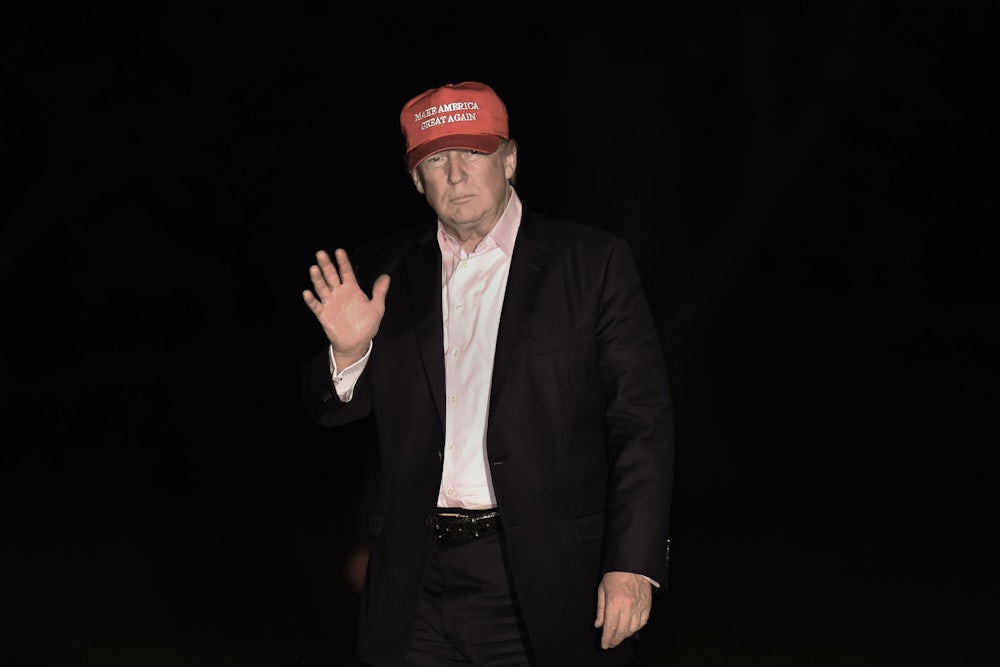There’s some dispute among scholars over the question of whether a sitting president can be indicted for a federal crime. But there’s no meaningful dispute over whether a sitting president can be investigated by federal law enforcement authorities.
Nevertheless, in a bonkers interview with The New York Times on Wednesday, President Donald Trump levied a thinly veiled threat at Justice Department Special Counsel Robert Mueller: Look too closely at my financial entanglements, and I’ll fire you!
SCHMIDT: Last thing, if Mueller was looking at your finances and your family finances, unrelated to Russia—is that a red line?
...
TRUMP: I would say yeah. I would say yes.
...
SCHMIDT: But if he was outside that lane, would that mean he’d have to go?
...
TRUMP: No, I think that’s a violation.
Needless to say, this is not how investigations work in any other context. The fact that Trump thinks this is remotely appropriate would be funny if it weren’t so chilling and abusive.
Firing Mueller wouldn’t be as straightforward as Trump’s bantering suggests. As a procedural matter, he would have to fire appointed DOJ officials until he found one willing to do the deed—a la the Saturday Night Massacre—or unilaterally change DOJ regulations to empower himself to do it. The ensuing political damage would be horrifying—both for himself and, given the way Republican congressional leaders have conducted themselves of late, most likely for the rule of law as well.
But by now, after living through the fallout of firing FBI Director James Comey, Trump must at some level understand what a fiasco firing Mueller would be. And yet he won’t rule it out. Trump just got done accusing states that won’t cooperate with his sham Commission on Election Integrity of having something to hide—and Trump is also a world-historical projector. He is telling Mueller his finances are off limits, because that’s where the evidence is. It has finally dawned on Trump how much jeopardy he really faces.
